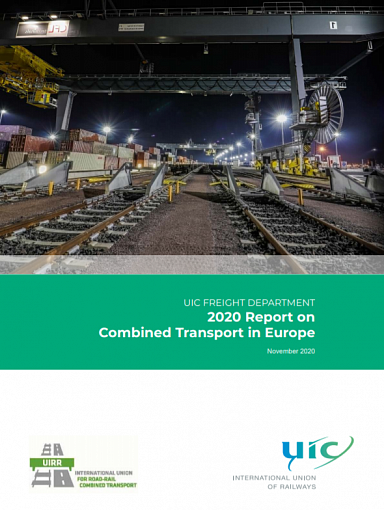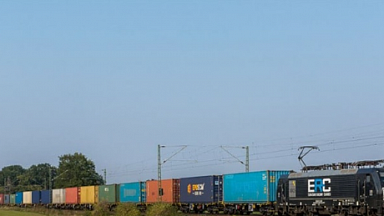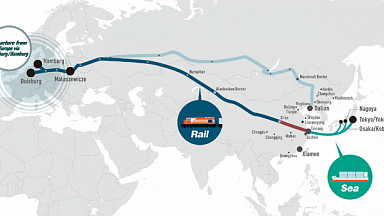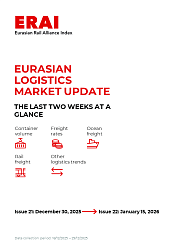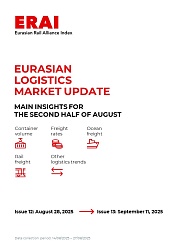The latest edition of the «2020 Report on Combined Transport» compiles up-to-date information on rail/road combined transport volumes for the year 2019, for all market segments, and gathers the market participants’ assessment of market structures and future developments.
The 2020 report focuses in particular on the presentation of regional disparities between selected regions of Europe, as well as on intermodal loading units (ILU), which are examined with regard to their use in combined transport. Moreover, the study gives an overview of the role of terminals in the combined transport chain, their capacities and services offered.
Climate change, public concerns for air pollution caused by diesel engines, unabated road congestion and a truck driver shortage have all directed the attention of European policymakers to Combined Transport.
The European Parliament Resolution on Climate and Environment Emergency of 28 November 2019 has led to the European Green Deal, which inspired the European Climate Law. The legislative proposal was submitted to the European Parliament, the Council, the Economic and Social Committee and the Committee of the Regions for further consideration under the ordinary legislative procedure. The European Climate Law is to spell out the pace and extent of decarbonization: 55% until 2030 and climate-neutrality by 2050.
Decarbonization and effectively countering the other challenges of our times (pandemic, social inclusion, etc.) cannot be achieved without a major impact on the way transportation is done today. Within the transport sector, when it comes to the longer distance freight segment, this means Combined Transport.
Combined Transport offers the most efficient means of transshipment of cargo between the different modes, and thereby the optimization of the benefits inherent to each mode: the flexibility of — preferably electrically powered — trucks over short distances with the energy efficiency and low carbon footprint of electric trains and waterborne vessels over the long distance segments.
The Smart and Sustainable Mobility Strategy, which is to succeed the EU Transport Whitepaper, is expected to be published in early December 2020. This will lay out the series of measures deemed necessary by the European Commission to facilitate the modal restructuring within the transport sector. Several pieces of European legislation will need to be amended in the foreseeable future to bring about the change, which include the Eurovignette (road tolling) and the Energy Taxation directives, the TEN-T Guidelines and the Rail Freight Corridor Regulation, as well as the Combined Transport Directive.
The most significant challenge that the railway sector will need to find a solution for is how the necessary tripling of rail freight tonne-kilometres (tkm) can be achieved within the coming decades.
The continuous development of Combined Transport over the last 10 years (+55% of tkm between 2009 and 2019) indicates the way forward that should be pursued through proactive actions at all levels, both legislative and sectorial.
The objective of the European railway companies to achieve a 30% modal shift by 2030, i.e. a doubling of current volumes, has been declared in 2019 (e.g. the Rail Freight Forward initiative). 2021 has been designated by the Commission as the «Year of the Rail», which will be a crucial milestone to achieving the aim. UIC and UIRR, as partners representing the sector, are confident that the current edition of the Combined Transport Report will deliver insights on the achievements and the challenges, and that it will infuse new energy for the ambitious changes that are needed.